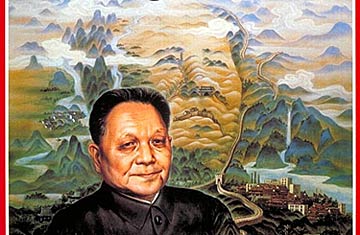
(5 of 20)
Just as Mao believed in speed and struggle, he also believed in conspiracy. If China was not moving with the speed he required to the socialist millennium he sought, there must be a conspiracy somewhere. Where else, he decided, but in his own party, where "class enemies" lurked? Yet it was not Mao's enemies who were resisting; it was China itself, and its realities of hunger and hope betrayed. "Mao Thought" could not move people as swiftly as it had moved armies. So, in 1966, Mao speeded the pace. "It was as if the law of inertia took over," said Hu Qiaomu, once Mao's private secretary, today in the Politburo as spokesman of China's intellectuals. "He was speeding the train down the track. The tram came to a bend because the terrain of China is different from what Mao thought. The train could not take the turn. It derailed."
The derailing of China is what is called the Great Proletarian Cultural Revolution. No more ironic title has ever been given to a dogma that tried to erase all culture. China is now recovering at a swifter pace than one could hope. But its people have lost ten, some say 20 years of normal life. The greatest feat of the present regime is that it has had the courage to denounce the disaster, fix blame and reverse course.
A COUNTRY DRIVEN TO CHAOS
The tormented decade of the Cultural Revolution can be divided into three chapters. The first lasted from the outbreak in mid-1966 to the end of 1967, when roving bands of Red Guard youth ferreted out and purged the supposed enemies of Mao in the bureaucracy, in factories, in provincial centers. That period ended in an anarchy so sweeping that the army had to seize the cities and re-establish food supplies. But the army was commanded by Lin Biao, who could see that the old man was failing and that power would go to whoever struck first. Lin miscalculated; his plot to kill Mao was exposed; and when he was killed in an airplane crash while trying to escape in September 1971, the army was subordinate to party again, and the third period began. In this period, which lasted until 1976, party politics were twisted into palace politics, as the Gang of Four sought to ensure the succession for themselves.
So much for history. What was happening was the triumph of fantasy over reality, a dogma so strange that endless blood underlined its absurdities. The theory of the Cultural Revolution was summed up in the word egalitarianism. All people must be re-educated to the peasant way of life. Enemies, said Mao, were buried in every party cell, every government office, every university, and must be burned out — "the capitalist readers," "the stinking intellectuals," "the rightists," "the revisionists." And all across China,
